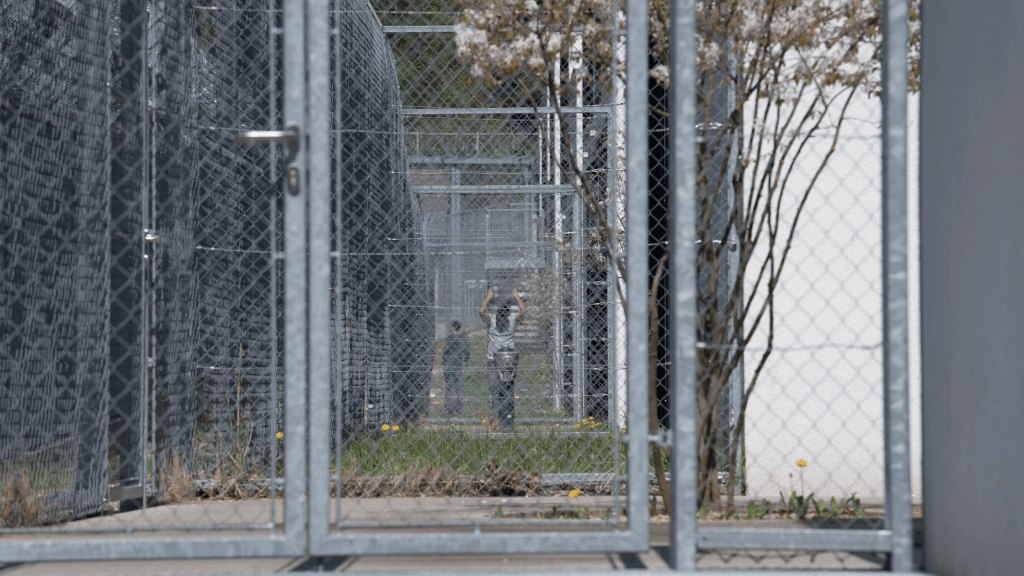
NZYQ v Minister for Immigration Decision Reaffirms Chu Kheng Lim Principles
Questions on constitutional and human rights have risen across Australia this week. As a result of the ruling in NZYQ v Minister for Immigration, politicians are scrambling to find a response to the outcomes of this case. This decision resulted in around 140 people being released from immigration detention in Australia.
In NZYQ, the court backed the decision in the 1992 case of Chu Kheng Lim v Minister for Immigration. In Lim, the court stated that detention must be limited to a period that “is reasonably capable of being seen as necessary for one or other of two legitimate and non‑punitive purposes”.
This recent decision overturns the 20-year precedent set out in the heavily-criticised Al-Kateb v Godwin. Basically, the court decided that as long as the government maintained an intention to eventually deport someone, they were allowed to detain someone indefinitely until that removal took place.
However, in the NZYQ case, judgment stated:
“During the 20 years since Al‑Kateb, the Lim principle has been repeatedly acknowledged and frequently applied.”
Now, the NZYQ High Court ruling finds that detention is punishment. Additionally, it can usually only be inflicted on an individual once a court of law finds them guilty. Now, the law allowing administrative detention of a non-citizen by the executive government is only constitutional if it’s reasonably necessary for a legitimate non-punitive purpose.
What happened in Al-Kateb?
In Al-Kateb, the High Court found that the government could detain a person indefinitely in immigration detention only under the following circumstance:
- if they were unable to return to their home country or another country,
- and if it was for the purposes of processing and removal.
The court’s reasoning was that immigration detention was not punitive detention, but administrative detention. As such, it did not infringe upon Chapter III of the constitution, which allows only courts to impose punitive detention. Consequently, the government could hold a person for an indefinite period as long as it was for the purpose of processing and removal.
Al-Kateb decision overturned
Recently, the High Court found that Al-Kateb arrived at a wrong decision and that immigration detention was a form of punitive detention. As such, it offended Chapter III of the Constitution, which vests in courts the power to impose punitive punishments and not the legislature or executive.
NZYQ v Minister for Immigration
In NZYQ, the plaintiff arrived in Australia in 2021 by boat. He was immediately placed in immigration detention for one year. Shortly after the government released him, police charged him with sexually assaulting a minor. A court sentenced him to 5 years in prison. During this time, he applied for refugee status. Officials said he was owed protection.
However, due to his criminal history, they denied him a protection visa. As a result, they put him in immigration detention. Due to him being at risk of persecution, the government could not deport him.
Therefore, he is effectively a stateless person. This meant that under the previous ruling of Al-Kateb, he could be in immigration detention indefinitely.
In NZYQ, the court confirmed key constitutional principles decided in Chu Kheng Lim. Namely, that detention is punishment. Furthermore, a court should only impose it once they find a person guilty. As previously discussed, the Court stated that a law allowing the administrative detention of a non-citizen by the executive government is only constitutional if it was reasonably necessary for a legitimate non-punitive purpose. Therefore, any detention is penal or punitive until proven otherwise.
In this case, the court said that the law that authorises detention of the plaintiff was not for the purpose of his removal. As there was ‘no real prospect of removal from Australia becoming practicable in the reasonably foreseeable future.’
NZYQ could not be deported from Australia
In NZYQ, those in charge became aware that they could not deport the plaintiff. At this time, they also knew that they could not achieve the statutory purpose for why they detained him. As a result, any detention from then forward was unlawful.
In conclusion, the law must treat everyone equally, regardless of their visa status. After all, freedom is a basic human right for all.
Outcome of Chu Kheng Lim
Basically, the Australian government cannot detain non-citizens for punishment. Similarly, they can’t make another punishment detention system in its place.
Additionally, the belief that the purpose of detention was to separate the plaintiff from the Australian community, is outside the limited range of legitimate purpose. Why? The purpose of detention must be something distinct from the detention itself. For example, the need to detain for deportation or grant permission to remain in Australia.
Recent judgement for immigration detention
Those covered by this judgment fit into three broad categories:
- People who are stateless,
- Those who need protection,
- Or people who cannot leave due to a practical barrier. This might include people who are physically or mentally unfit. Additionally, if their home countries is not cooperating with attempts to remove them.
For some of these individuals, a court has never convicted them of anything. However, others face serious offences.
Immigration detention claim in Australia
These recent changes have resulted in the release of around 140 people from immigration detention. If you believe your detention was unlawful, you might have a case against the government.
How we can help
As a result, there are serious questions raised on unlawful imprisonment in Australia. Therefore, we encourage people to come forth. We can help advise you on your legal rights.
O’Briens Criminal & Civil Lawyers are specialists in unlawful imprisonment. We have filed more claims against state and commonwealth agencies than any other law firm. Call us today on (02) 9261 4281 to book a free initial consultation with one of our civil lawyers.
Related Posts:

Nicole Byrne
Content Creator | Media Coordinator
O'Brien Criminal & Civil Solicitors
www.obriensolicitors.com.au






